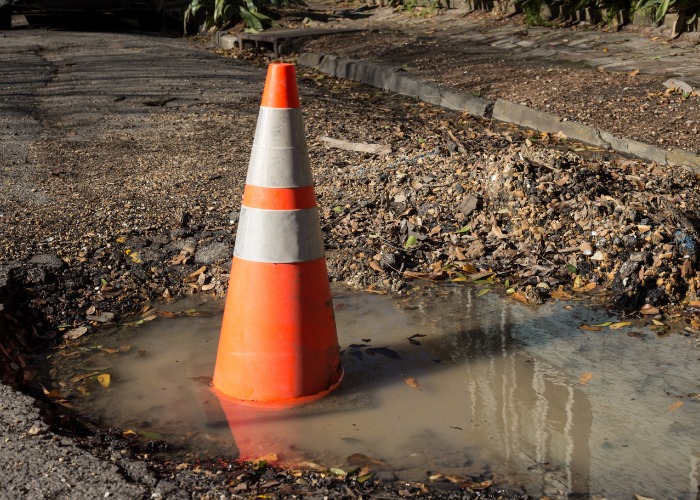Opinion: if we’re going to fix potholes permanently, we need to raise taxes

Getting furious about potholes makes no sense if funding cuts mean councils are too poor to repair them.
In a country with plenty to get annoyed about, bumpy roads maintain a special place in our hearts, as well as our wallets.
Potholes are one of the few areas where the Government appears to be listening to complaints, with councils this month handed £201 million for road maintenance.
That follows the chancellor's last Budget, where he assigned more money to potholes (£420 million) than to schools (£400 million).
A pothole is now filled every 17 seconds, according to a report by the Asphalt Industry Alliance (AIA).
That sounds impressive, but it’s simply not enough: the organisation estimates a ‘one-time catch up’ of the UK’s ageing roads would cost a staggering £9.79 billion.
Where are we meant to find that money? With traditional sources of funding declining, we’re faced with some tough decisions.
Pothole damage: how to claim compensation from your local council
Who pays?
Big infrastructure projects come with big costs. The problem is that the wrong people are paying.
Some 97% of roads are maintained by local councils, which only get around half of those costs funded by central Government.
The average council is getting £3.9 million less than it needs to maintain its roads and the gap is widening in England and particularly London, according to the AIA report.
The result of this is rising Council Tax and tough spending decisions. Councils pay for police, housing and adult and child social care, so guaranteeing residents a smooth driving experience may not be top of their agenda.
The same tough spending decisions are also being made by central Government in Westminster, with even higher stakes: school head teachers are warning of a £5.7 billion funding shortfall for 2019-20 alone.
Opinion: councils are the wrong target for your Council Tax rage
Fuel Duty isn't enough
It's clear that funding is falling short, as are the current measures.
Fuel Duty has always been unpopular and as a result, the Government cut the rate and then froze it every year since 2011, meaning it has fallen in real terms.
Added to that, the gradual move to more efficient and electric cars means that the revenues from Fuel Duty aren't rising as fast as you'd expect, according to the Office for Budget Responsibility.
By 2040 the Government wants all new cars to be electric, resulting in a £28.2 billion funding black hole. And, one way or another, that money will come from us.
How to find the cheapest petrol and diesel prices near you
Paying per mile one solution
How should we settle the looming pothole bill?
Bloomberg News recently investigated the decline of Fuel Duty and suggested as a solution a road toll scheme charging 9p a mile, adding up to £710 a year for the average motorist.
Edmund King, the president of the AA, has called for a ‘Road Miles’ toll, costing less than 1p a mile.
Rural and electric vehicle drivers would receive 3,000 free miles to get started and discounts offered for driving at night, with miles being calculated by a ‘telematics dongle’ in the car.
The disadvantage of toll schemes is that rural drivers will ultimately pay more than city dwellers, despite the latter’s Amazon delivery trucks and Uber drivers filling up the roads.
Broader taxes increases could make sure they pay their fair share.
Either way, calling for fewer taxes and fewer potholes just doesn't add up, whatever politicians may promise.
It’s time to put our hands in our pockets if we want to properly tackle this problem.
What do you think? Do we need to raise more funds or is the current money not being spent wisely enough? Vote in our poll below and share your thoughts in the comments section below.
Comments
Be the first to comment
Do you want to comment on this article? You need to be signed in for this feature